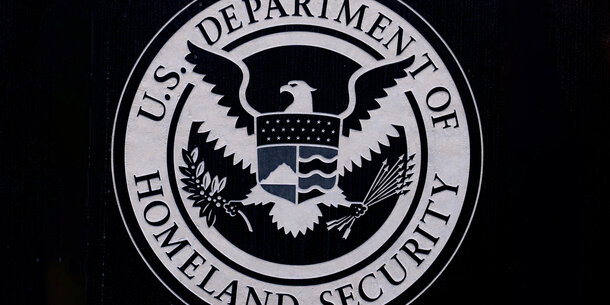You’re reading The Briefing, Michael Waldman’s weekly newsletter. Receive it in your inbox.
The shape of the big showdown on presidential power is now coming into view.
Two appeals courts in the past few days have issued resounding rulings that many of President Trump’s high-profile moves on tariffs and immigration were illegal. Both cases will soon head to the Supreme Court. And after quietly granting Trump his way on so many matters, often without signing their names to orders, the justices will have no choice but to decide in the light of day: Stand up for the Constitution or lie down for Trump.
On Tuesday, the Fifth Circuit Court of Appeals ruled that Trump’s use of the Alien Enemies Act was illegal. That law is the last remaining part of the Alien and Sedition Acts of 1798. It’s a wartime statute. Previously, it was used during the War of 1812, World War I, and most notoriously during World War II to detain vast numbers of innocent foreign nationals.
Here, hot off the presses, is the court’s ruling. It’s worth a read.
Trump has tried to use the Alien Enemies Act to detain and deport Venezuelan nationals without due process. The administration claims that they are part of an invasion force, conducting warfare against the United States.
The appeals court judges didn’t buy it. Even assuming the truth of Trump’s assertions that Venezuela is directing mass migration and gang violence in the United States — claims contradicted by Trump’s own national security leaders and intelligence reports — the judges found no “invasion or predatory incursion” by a foreign power as the statute requires.
“A country’s encouraging its residents and citizens to enter this country illegally is not the modern-day equivalent of sending an armed, organized force to occupy, to disrupt, or to otherwise harm the United States,” the court wrote. “There is no finding that this mass immigration was an armed, organized force or forces. It is an action that would have been possible when the AEA was written, and the AEA would not have covered it. The AEA does not apply today either.”
This ruling was the first by a federal appeals court to squarely address whether the Alien Enemies Act can be used this way. Of note, it was issued by the Fifth Circuit, widely considered the most conservative federal appeals court in the country.
Meanwhile, another federal appeals court found last week that Trump’s “liberation day” tariffs were illegal and unconstitutional. This ruling threatens to upend the trade war that has roiled global markets, stoked inflation, and driven away longtime U.S. allies.
The Constitution, after all, gives Congress the power to set tariff rates. Presidents cannot do so unilaterally any more than they can set income tax rates on their own. Some statutes have granted presidents specific powers, and Trump claims that the International Emergency Economic Powers Act (IEEPA) allows him to tax imports at will.
That’s nonsense, ruled the U.S. Court of Appeals for the Federal Circuit in a 7–4 vote.
“The statute bestows significant authority on the President to undertake a number of actions in response to a declared national emergency, but none of these actions explicitly include the power to impose tariffs, duties, or the like, or the power to tax,” the court said. “It seems unlikely that Congress intended, in enacting IEEPA, to depart from its past practice and grant the President unlimited authority to impose tariffs.”
As The Wall Street Journal noted, “Across three different courts, 15 judges have weighed Trump’s tariff maneuvers — and 11 of them, appointed by presidents of both parties, have found he acted without legal support.”
Trump says the government will appeal to the Supreme Court today, claiming that if the tariffs are struck down, it would be “a disaster for the United States.” Indeed, his argument seems to be “Look what a mess we made. Cleaning it up will be worse.”
So what next?
This year, the Supreme Court has hardly covered itself in glory. In the face of the most aggressive expansion of peacetime presidential authority in history, the justices have — with just a few notable exceptions — squirmed and wriggled to avoid confronting the White House. Often they have backed Trump’s moves but done so quietly, in unsigned emergency docket orders.
These cases, though, will now be fully briefed and argued on the merits, heard in the bright spotlight of public attention.
The stakes go to the heart of American law. Can a president unilaterally set tariff rates, a power no chief executive has ever claimed before? Can a president unilaterally detain and deport migrants simply by asserting, without evidence, that they are gang members invading the United States on behalf of a foreign government?
In 1776, the Declaration of Independence decried King George for “cutting off our Trade with all parts of the world:
“For imposing Taxes on us without our Consent:
“For depriving us in many cases, of the benefits of Trial by Jury:
“For transporting us beyond Seas to be tried for pretended offences.”
Back then, Thomas Paine wrote in Common Sense, we had no sovereign. “In America, the law is King.” In the coming months at the Supreme Court, we will find out if that is still true.



